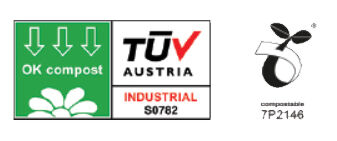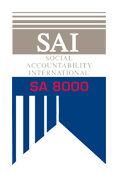Read in PDF
Why palm leaf is a good choice!
Palm leaf disposables are made exclusively from fallen palm leaves. This type of material does not only have a natural appearance, but also contributes to a cleaner environment for us and future generations. Compared to conventional plastics, the material is completely natural, there are reduced carbon dioxide emissions, we become less dependent on fossil sources and we contribute to reducing the plastic waste problem.![]() industrially compostable
industrially compostable![]() natural raw material
natural raw material![]() suitable for hot and cold applications
suitable for hot and cold applications![]() SA8000 certified
SA8000 certified
The natural material
Palm leaf disposable tableware originates from India and is made from fallen palm leaves from the Areca Betel palm. It is an upright, up to 15 meters high, palm that belongs to the Areca palm family. The palm contains a fruit (betel nut), which is harvested and used. The trunk is slender, the leaves are pinnate and ussualy about 2 meters long. During the growing periods, leveas fall continously (up to 4 to 7 times a year) from the palm, so the leaves are not picked. Before using the leaves for disposables, they were not used or even burned.

Natural fallen leaves
Only naturally fallen leaves are collected by local residents and brought to the production site.

In this product location, the leaves are cleand with water and pressed into a mould at 180°C for 50-60 seconds.
After the products are cut by hand, they are washed piece by piece and dried in an oven. They are then sterilized with UV radiation and immediately packed in the packaging unit.
Disposables made from palm leaves have a beautiful, natural look and are suitable for both hot and cold applications. The products are also experienced as very sturdy. Each products has its own unique structure and color scheme, which ensures an authentic and natural look.

Compostable and biodegradable
Packaging and disposables made from palm leaves are biodegradable and industrially compostable.
Biodegradable
The fact that palm leaf disposables are biodegradable means that they can be broken down naturally by fungi and bacteria. However, it says nothing about the speed at which this happens and under what circumstances. Ultimately, plastic is also biodegradable, but it takes a very long time to break down. Nor does it mean that a product can be converted into compost.
Compost
Composting is a method of processing organic waste. Bacteria, fungi, small insects - also called micro-organisms - feed on the solid waste and convert it into carbon dioxide, water and humus (biomass). Those micro-organisms need oxygen for this. That is why we speak of an aerobic process. In addition, a relatively high degree of humidity and a sufficiently high temperature are required for a good compostig process.
Industrial composting
In industrial composting, installations continously monitor and adjust the process. This speeds up composting considerably. In a few weeks (max. 12 weeks) the waste is converted into compost. It is also possible to invest in a composting machine yourself. In such a machine it only takes a few days.

HOME composting
It is also possible to compost some packaging on a compost heap. You are, among other things, dependent on weather conditions. Converting the waste into compost is much slower, especially in cold or dry weather.

Certifications - EN13432 industrial compostability
Packaging certified according to European standards EN13432 can be composted in industrial composting installations and smaller composting machines (at temperatures of 55 to 60°C).

SA8000
This standard measures social performance in 8 areas relevant to social responsibility at work:
1. no child labour
2. no forced or compulsory labour
3. a safe and healthy working environment
4. workers have the right to form trade unions
5. no discrimination
6. employees are treated with respect
7. no unreasonable working hours
8. right to a fair living wage
The SA8000 standard is the leading social certification standard for factories and organizations around the world. It is valued by brands and industry leaders for its rigorous approach to ensuring the highest quality of social compliance in their supply chains, without compromising business interests.

